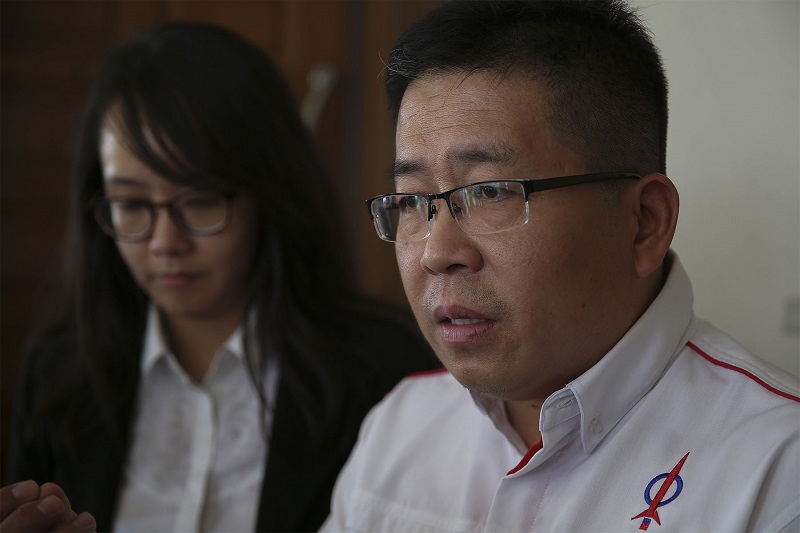KUALA LUMPUR, Aug 27 ― Leaders from both Johor and Sabah chapters of DAP have rebuked Parti Pribumi Bersatu Malaysia Youth chief Wan Ahmad Fahysal Wan Ahmad Kamal’s call to abolish vernacular schools.
Johor DAP vice-chief Tan Chen Choon even called on the authorities to investigate Wan Ahmad Fayhsal for alleged sedition over his proposal, saying it was in conflict with the Federal Constitution.
“Article 152(1)(a) of the Federal Constitution states that no person shall be prohibited or barred from using (other than for official purposes), or from teaching or learning, any other language.
“The Sedition Act 1948 states that any person who questions any matter, right, status, position, privilege, sovereignty or prerogative prescribed or protected by the provisions of Part III of the Federal Constitution or Articles 152, 153 or 181 of the Federal Constitution contains elements inciting and prosecuting tendencies.
“Thus, Wan Ahmad Fayhsal's statement questioning the matter with a statement to abolish vernacular schools may have violated the Sedition Act 1948 and the police should conduct an investigation,” said Tan in a statement.
He added that despite Wan Ahmad Fayhsal saying that he accepts diversity, the practice of mutual respect for each other among our multiracial community is the basis that brings harmony.
“In any type of society, the majority should not use hegemonic narratives or force the minority to accept values from the majority.
“On the other hand, the various races in our country need to have a common ground in addition to having the need to respect such diversity.
“Wan Ahmad Fayhsal's statement to abolish vernacular schools has hurt the feelings of other races and he should withdraw the statement and apologise to the Chinese and Indian community,” said Tan.
Meanwhile, Sabah DAP secretary Ginger Phoong Jin Zhe explained that Sabah’s multi-ethnic society has been living in harmony even with its vernacular schools.
He said in Sabah, 71.5 per cent of Sabah SJK(C) students are non-Chinese.
“However, the Chinese school students are still living harmoniously in Sabah society and to the extent, Malaysia society,” Phoong said.
He said that it was not vernacular schools that caused weak national identity, but ethno-centric politics that was the problem.
“It is ethno-centric political ideologies that Bersatu and other parties like MIC, MCA, Umno, has been advocating ― namely that these parties only fight for 'certain ethnicities', that have created this necessity for vernacular schools,” he said.
He lambasted Wan Ahmad Fayhsal for suggesting that by destroying the institution that has provided education for generations of non-Malays since the founding of the nation, that somehow magically and miraculously, the younger will display a “stronger national identity.”
Phoong said that abolishing vernacular schools is akin completely abolishing the cultural needs of other ethnic groups in Malaysia, specifically to deprive the ethnic non-Malays ― Chinese, Indian, Kadazan and other ethnic groups ― their constitutional rights to learn and study in their mother tongue on top of the national language.
Instead of “stoking the flames of racial supremacy and hijacking our education system for political mileage” Phoong said Wan Ahmad Fayhsal should look at how Sabah managed to build national identity by recognising the Chinese UEC examination last year.
Yesterday, Wan Ahmad Fayhsal said that Parti Pribumi Bersatu Malaysia’s Youth wing continues to support the abolishment of vernacular schools in the country.
Wan Ahmad Fayhsal, who was recently appointed as the Armada wing chief, claimed in a statement that the vernacular schools have not produced students who possess a “strong national identity”.




















